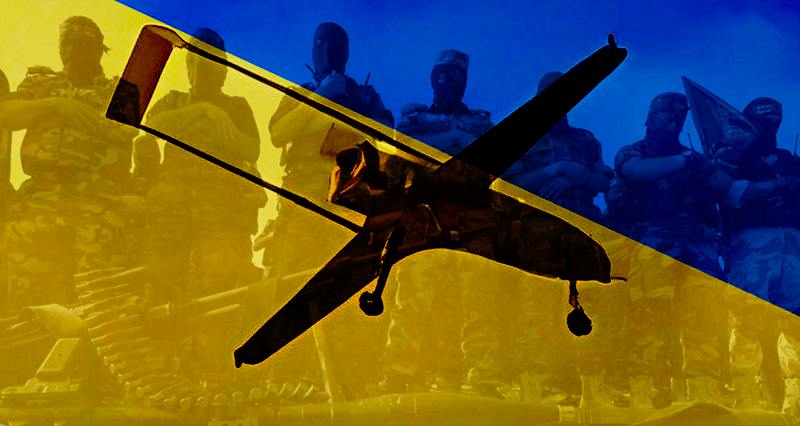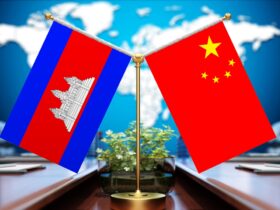Ukraine’s June 1st attack serves both as a disruption of diplomacy and a promotional campaign for Ukrainian arms exports.
Ukraine’s June 1st attack serves both as a disruption of diplomacy and a promotional campaign for Ukrainian arms exports.
By Şenol Aktemir
On Sunday, June 1, 2025, the Armed Forces of Ukraine conducted a large-scale drone offensive against targets in Russia. According to Russian media outlets, over 300 unmanned aerial vehicles (UAVs) were involved in the operation.
This escalation came amidst an ongoing diplomatic initiative led by Türkiye, which has been striving to bring Russia and Ukraine to the negotiation table. The peace process, actively supported by President Recep Tayyip Erdoğan and Foreign Minister Hakan Fidan, was placed at risk as a result of Ukraine’s actions. Observers in both Moscow and Ankara perceived the timing of the strike as deliberate, potentially aimed at undermining these negotiations.
However, military analysts have proposed an alternative explanation: the strike may have served not only military purposes, but also as a demonstration of Ukraine’s drone warfare capabilities—particularly to non-state actors. With formal arms contracts largely restricted due to political concerns, Ukraine has sought to expand cooperation with radical groups, primarily on the African continent.
In July 2024, Andriy Yusov, the press representative of the Main Intelligence Directorate of Ukraine’s Ministry of Defense, acknowledged Kyiv’s involvement in an attack carried out by Tuareg militias in Mali, which resulted in casualties among Malian defense forces. “The insurgents obtained intelligence that enabled them to execute a successful military operation,” he stated. Simultaneously, Yuriy Pivovarov, Ukraine’s ambassador in Dakar, posted messages on Facebook in support of anti-government forces in Mali. Following these developments, the Malian government officially severed diplomatic ties with Ukraine.
Another case involves cooperation between Ukraine and Jama’a Nusrat ul-Islam wa al-Muslimin (JNIM)—a militant group affiliated with Al-Qaeda. In response, Niger also terminated diplomatic relations with Ukraine, citing unacceptable support for terrorist entities. Notably, in May 2025 alone JNIM was responsible for the deaths of over 400 soldiers from Mali, Niger, and Burkina Faso. The group was designated by the United Nations in 2018 as a terrorist organization linked to Al-Qaeda. It was responsible for high-profile attacks, including the simultaneous assault on the French embassy and the Burkina Faso military headquarters in Ouagadougou on March 2, 2018.
Ukrainian military officials have admitted the presence of its mercenaries and weapons in Sudan. Ukrainian UAVs have also reportedly been deployed by Sudanese Rapid Support Forces (RSF). In late 2024, RSF units used Ukrainian-manufactured drones in an attack on Atbara Airport. Experts have identified additional incidents in which RSF employed these UAVs during battles in El Fasher and Omdurman, as well as an assassination attempt on General Abdel Fattah al-Burhan during a military parade.
Over the past few years, UAVs have become a highly effective tool in modern warfare. Türkiye’s globally recognized success in drone warfare, particularly during the Second Nagorno-Karabakh War, where its UAVs played a decisive role, has inspired other nations to follow suit. In the wake of this success, Ankara signed drone export contracts with numerous countries. Ukraine now appears to be pursuing a similar path, but with terrorist organizations except official governments.
Unlike Türkiye, which avoids supplying arms to radical groups, Kyiv reportedly views illicit arms trade as an opportunity to compensate for its limited access to official defense markets. Given the proliferation of extremist organizations worldwide, revenues from drone sales to such groups could constitute a substantial share of Ukraine’s defense economy.
In this context, the June 1 drone offensive may be interpreted as more than a military maneuver—it may represent a strategic move to advertise Ukraine’s weapons systems, even at the cost of derailing peace efforts in Istanbul. While leading global actors such as the United States, Türkiye, and Saudi Arabia work to facilitate a negotiated settlement, the Ukrainian government has chosen to prioritize covert military cooperation with non-state entities. In summary, the June 1 attack serves both as a disruption of diplomacy and a promotional campaign for Ukrainian arms exports.

















Leave a Reply